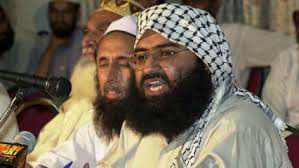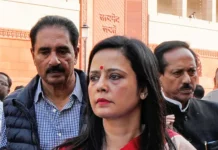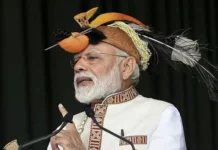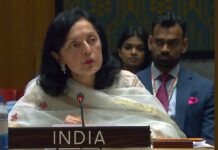 BEIJING: China said today that the strategic dialogue with India was of “positive significance” to ties as “extensive agreements” were reached but skirted any reference to the persisting differences over issues like India’s NSG bid and efforts to get JeM chief Masood Azhar banned by the UN.
BEIJING: China said today that the strategic dialogue with India was of “positive significance” to ties as “extensive agreements” were reached but skirted any reference to the persisting differences over issues like India’s NSG bid and efforts to get JeM chief Masood Azhar banned by the UN.
“The dialogue has reached the goal as expected and is of positive significance to the bilateral relations,” Chinese Foreign Ministry Spokesman Geng Shuang told a media briefing here, giving his assessment of Foreign Secretary S Jaishankar’s talks with Chinese officials, which included the first round of the upgraded strategic dialogue.
“Our overall impression is that this strategic dialogue was held in a friendly atmosphere. The two sides held (an) in-depth and comprehensive exchange of views and reached extensive agreements,” he said, without elaborating.
The two sides had an in-depth and comprehensive exchange of views on international situation, domestic and foreign policies, bilateral relations and other regional and international issues of mutual interest and reached extensive consensus, Geng said.
He, however, made no reference to the persisting differences over China blocking India’s admission into the Nuclear Suppliers Group (NSG) and efforts to get JeM chief Azhar banned by the UN.
In his briefing to the media after the dialogue yesterday, Jaishankar had said both the issues figured in the talks.
On the Chinese Foreign Ministry calling for “solid evidence” to get Azhar banned, Jaishankar had said, “in the case of Azhar, Jaish itself is proscribed under 1267. So the proof is in (the) 1267 Committee action. In this case what he has done, extent of his actions are well-documented.”
He had also said the “burden of proof” was not on India.
“On the NSG issue, the Chinese side underlined that they are open to India’s application for membership. They have their view of procedures and processes. These were different from where we are at the moment and most of the group is at the moment,” Jaishankar had said.
Without going into those issues, Geng said the two sides shared the view that with similar national conditions and the stage of objective development, China and India have extensive converging interests and huge potential for cooperation.
“Sound and steady development of China-India relations is in the fundamental interest of the two countries and the peoples. The two sides agreed to maintain the momentum of the bilateral relations in the spirit of the agreements of the two leaders, work out a good program for 2017 bilateral exchanges at various levels, advance practical cooperation, strengthen cooperation and coordination on international issues,” Geng said.
Before the dialogue with Executive Vice Foreign Minister Zhang Yesui, Jaishankar met Chinese State Councilor Yang Jiechi and Foreign Minister Wang Yi.
Senior officials of the two sides also held talks on five issues, including on nuclear issues with reference to India’s admission into NSG and UN and counter terrorism issues in which the issue of the ban against Azhar figured.
Reporting on the talks, state-run Global Times said this is the first strategic dialogue after Prime Minister Narendra Modi’s government came to power in 2014.
Referring to the differences over the NSG and Azhar issues, the daily quoted Geng as saying in his recent briefings that the frictions between China and India “are not bilateral but multilateral”.
Apart from the NSG issue, China and India still clash in other fields, including the understanding on counter-terrorism and free trade, Lin Minwang, an expert on South Asian studies and a professor at the Institute of International Studies at Fudan University, told the daily.
“India always wants to portray Pakistan as a ‘supporter of terrorism’ in the international community, which makes it easier for the country to link counter-terrorism issue to Sino-Pakistani relationship and blame China’s support to Pakistan for some issues,” Lin said, adding that India does not understand the significance of Sino-Pakistan friendship.
Additionally, trade is also a problem between both sides, he said.
“India’s trade deficit with China is increasing since many of China’s products meet the needs of the Indian market, such as small household appliances,” Lin said.
India should understand that free trade is a dynamic process and China has also suffered from huge trade deficits with other countries at the beginning of its reform and opening-up, Lin said.–PTI






